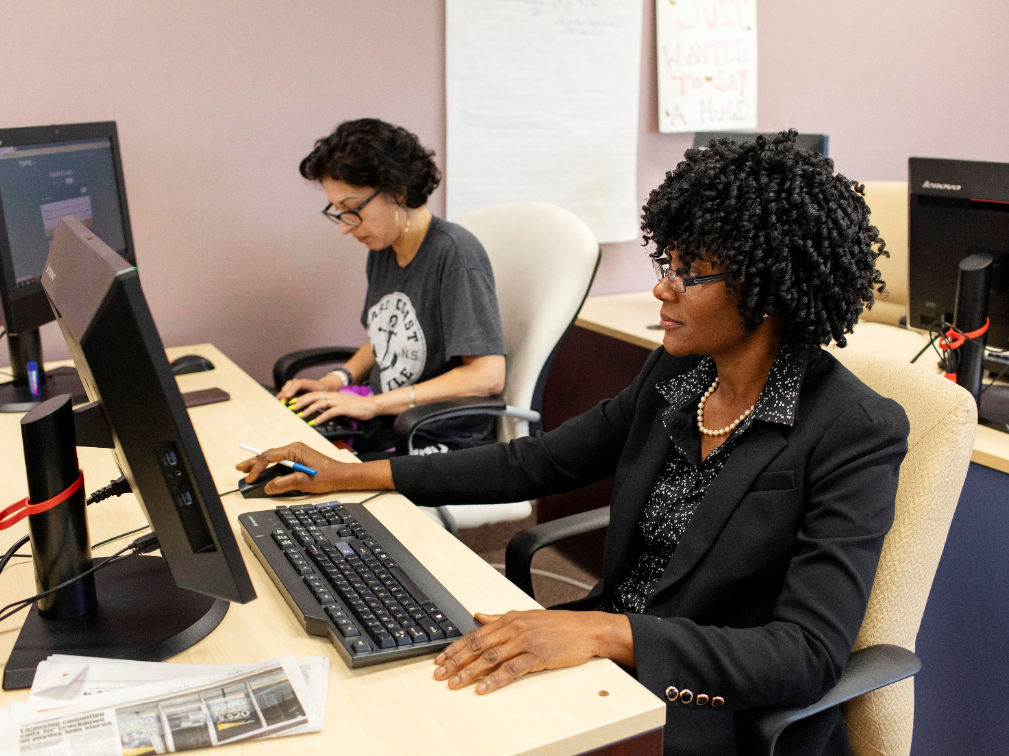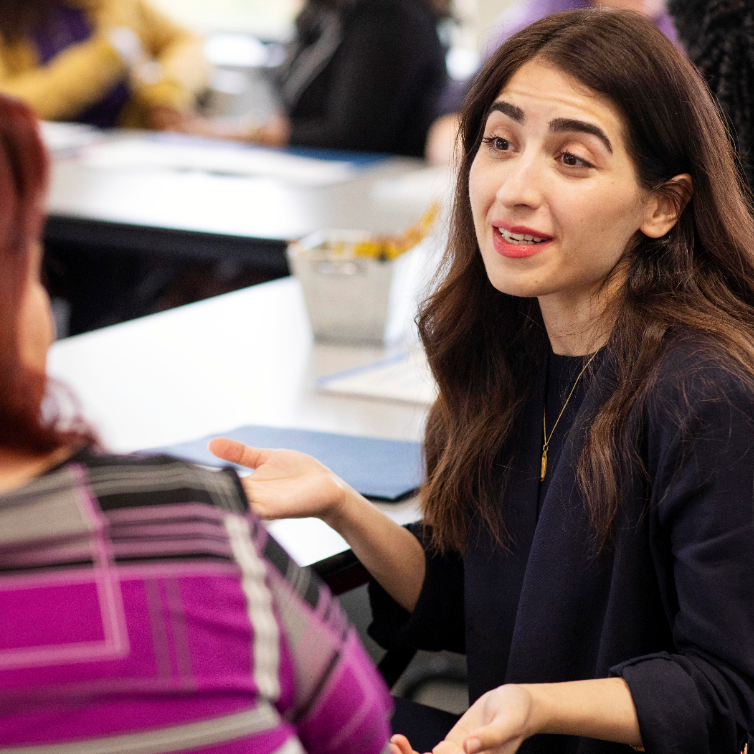In January 2019, YWCA Canada launched Born to be Bold: Measuring success for women’s access to the labour market – a three-year research and knowledge mobilization project funded by the Government of Canada focused on creating systemic change for women’s equitable access to the labour market. I interviewed Shiva Mazrouei, Research Officer for YWCA Canada’s Born to be Bold project to hear her perspective on conducting participatory research with women across Canada.
Shiva will be working in eight provinces and one territory in Canada evaluating systemic barriers inhibiting women from accessing the labour market and identifying best practices for engaging women in the workforce. She will conduct research with several equity seeking groups, women from remote and Northern communities, racialized and Indigenous women, women fleeing violence, newcomers, single mothers, 2SLGBTQ+, low-income women and women with varying levels of ability.
Why is this research important to you? Well, it’s really important to have an intersectional lens when talking about the future of work and the Canadian economy, especially because women with marginalized experiences make up a large proportion of our population; but also have so much to offer to our economy. We need to have a more nuanced understanding of the barriers that they face to accessing not only employment, but gainful employment where they can happily thrive.
Have you met some of the women that have been impacted by this research? Yes, a lot of the activities are with our program participants at the different YWCAs. I’ve had the chance to interact and learn from these amazing women through interviews and focus groups. Those conversations are a good reminder of why this research is important.
How has this research impacted you in your day-to-day life? I think it adds to how I look at barriers for women with marginalized experiences in general. This research has made me realize how important context is. In what way? How different locations and identities will have many different challenges. Day-to-day it also makes me look at our workplaces and our discussions around employment; always looking for who is missing and who needs to be involved in the conversation.
What is your work day like? Interesting, my workday differs depending on what’s happening. When we established the research, a lot of it was actually background research, readings and deciding activities, ethics framework and protocol; but also connecting with and building relationships with participating member associations. Research days are super exciting, which is the best part of the job. I get to go to different member associations and meet all the wonderful staff who are doing the actual work that I’m writing about. Then having some of the research activities such as focus groups and interviews with program participants and program staff. I am learning about their experiences, engaging with them and trying my best to represent their experiences. We are coming up soon to where my days will be spent in a corner with data and analyzing.

Where do you see this research going? I always preface any of the research activities by letting participants know that, the one thing I can promise is a report that will hopefully do justice to relaying their experiences with accessing gainful employment. I hope this research will inform and impact employers’ and policy makers’ approach to getting more women into the workforce by understanding the complexities of barriers women face given the different aspects of their identities.
Are there any specific policies that this research could impact? Well, there is definitely going to be trends and patterns that can impact policies. For example, pay equity, child care, transportation, housing and so on.
What have you found are the challenges to women accessing employment? Again, I think there are many and each woman’s context needs to be taken into consideration and I hope to highlight it with the research. Women’s individual contexts are not considered or included in the structures that are currently set up for employment.
What can we do to challenge these barriers? What we need to consider when talking about the future of work and women in the workplace is that we really do need an intersectional framework; to stop talking broadly about women vs men – start asking which women we are talking about. When we talk about access to gainful employment, the number one thing people think is employment and employment programming and opportunities. We need to step away from that and start thinking on a much more holistic level. Access to gainful employment doesn’t come down to just education and employment experience, but access to safe and secure housing, mental health, childcare, transportation, etc. We need to step away from a narrow view of employment is education and consider that the current structures weren’t built for women, so we are asking them to fit into a mould that wasn’t built for them, rather than changing the structures.
To learn more about the Born to be Bold project and YWCA Canada’s economic empowerment work, visit https://ywcacanada.ca/what-we-do/create-change/economic-empowerment/ or reach out to us at projects@ywcacanada.ca. This project is funded by the Government of Canada.
